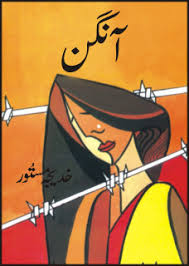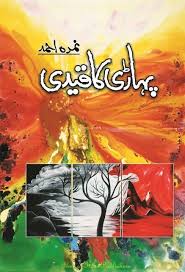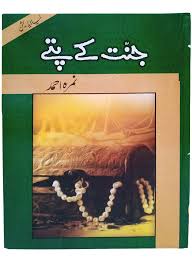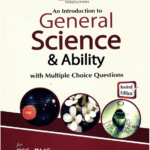Description
Ankahi” is one of the most famous Urdu novels written by Ashfaq Ahmed, who was one of Pakistan’s most respected writers and intellectuals. His writing is rich with profound storytelling that implies philosophy, spirituality, and human nature. The overall body of his work upholds the idea of complication in life, emotions, and relationships. “Ankahi,” meaning “unsaid” or “unspoken,” encompasses these thoughts by focusing on unsaid feelings, unexpressed emotions, and the deeper layers of human interaction.
Summary:
1. Plot Summary:
Ankahi” is the story of its central character, Sana Murad, a bright, young girl with ambitions to have a better life for herself and her family. Sana belongs to a modest family, yet she has ambitions big enough to be very lively and inclusive-chargeable for an impact in her career. She wants to make considerable money for improving the financial situation of her family and, of course, a lot of love.
She gets a job in some rich businessman’s office and meets all characters like Taimoor, a young fellow from the same office, a good natured boy at the first glance but without any interest in Sana. Gradually and gradually Sana’s relation with people around her emerges with humor, emotion, and romance.
While Sana’s difficult phase of navigating her professional life and the quest for her dreams is prevalent throughout the novel, “Ankahi” also reveals the intricacies she creates through different relationships that develop for her. Such office colleagues and family members, besides all the people she encounters along the way, portray a side of happiness, confusion, and left unsaid emotions-all which reminds one of the title of the book.
2. Themes:
Unspoken Emotions: One of the major themes for this novel is that very often important things are left unspoken, be it love, regret, or some other battle within a person. These unspoken emotions deliver tension and depth to relationships between characters. The silence of human interaction, where many often mean more behind unspoken words than behind the spoken ones.
Dreams and Ambitions: The personification of Sana projects the young generation who aspires for success and strives to make their life better. The ambition and problems of Sana illustrate that life can be brutal and unfair at times while making aspirations come true. Through this novel, exploration happens in terms of how dreams not only push people but bring heartache due to a more probable deficiency of keeping up with dreams.
Social Realities: The novel subtly critiques the socioeconomic disparities prevalent in society through the minor backgroud of Sana. The author has outlined how people from different classes interact and the struggles of the people who have aspirations to come up above their standard of living.
The following are some of the ways by which the drama, “Ankahi,” is so amusing and light-hearted. The dramas never missed dealing with such serious themes but had a lot of humor mostly because of Sana’s eccentric personality and her encounter with people. Her innocence, coupled with boldness, presents some situations that would leave the reader laughing and reflecting.
Sana Murad is the heroine, whose story forms the nucleus of this novel. She is ambitious yet naive; courageous yet vulnerable. The overall tone and the evocation of characters bring forth the essence of hopeful youthful determination, and simultaneously, the bittersweet character of growing up and all its hard realities.
The other plot is that of Taimoor, her colleague. He appears aloof in the first few pages but unfolds into someone with far deeper emotions and kindness that he doesn’t express. Their discreet relationship with Sana forms an important emotional thread throughout the story.
Supporting Characters: The novel is full of many different kinds of supporting characters that add depth to the narrative from Sana’s family members at home to her colleagues working alongside her. Each one contributes to Sana’s experiences and enlightenment on life and relationships in general.
4. Philosophical Reflections:
Unsaid in Relationships Ashfaq Ahmed has opined that much of what constitutes a relationship be it familial, amorous or professional is unsaid, in other words unsaid. The emotional and mental factors which are let unspoken give origin or put a closure to relationships in a more dramatic way than any other form of expression.
Reality vs. Dreams : the writer juxtapositions that idealism with the harshest realization of the world; and so, in it, this man carries a perception that perhaps all that was said about dreams is true, but life demands compromise or sometimes at its cost.
Another philosophical reflection in “Ankahi” is the concept of human connection, where people may never say what’s in their minds but are connected way too much. That speaks to the depth of human relationships, where even silence or lack of words can convey strong emotions.
5. Cultural and Social Context:
Set in Pakistan, the novel reflects the social fabric of the country-it embodies many complexities in class differences and the understanding of gender roles along with societal expectations. “Ankahi” quietly critiques some of those norms but celebrates in vibrant resilience those within it.
Conclusion:
“Ankahi” by Ashfaq Ahmed is an excellent novel simply beautifully portraying human emotions, silent words, and complicated relationships. The dream and ambition of a teenager girl are portrayed by it once again in the bittersweet realities of life. Satirical, emotional, and philosophical depth makes “Ankahi” a shiny piece of Urdu literature, but people who possess a sense of realizing such delicate beauty in unexpressed emotions and richness in human interaction feel its magic.










Reviews
There are no reviews yet.